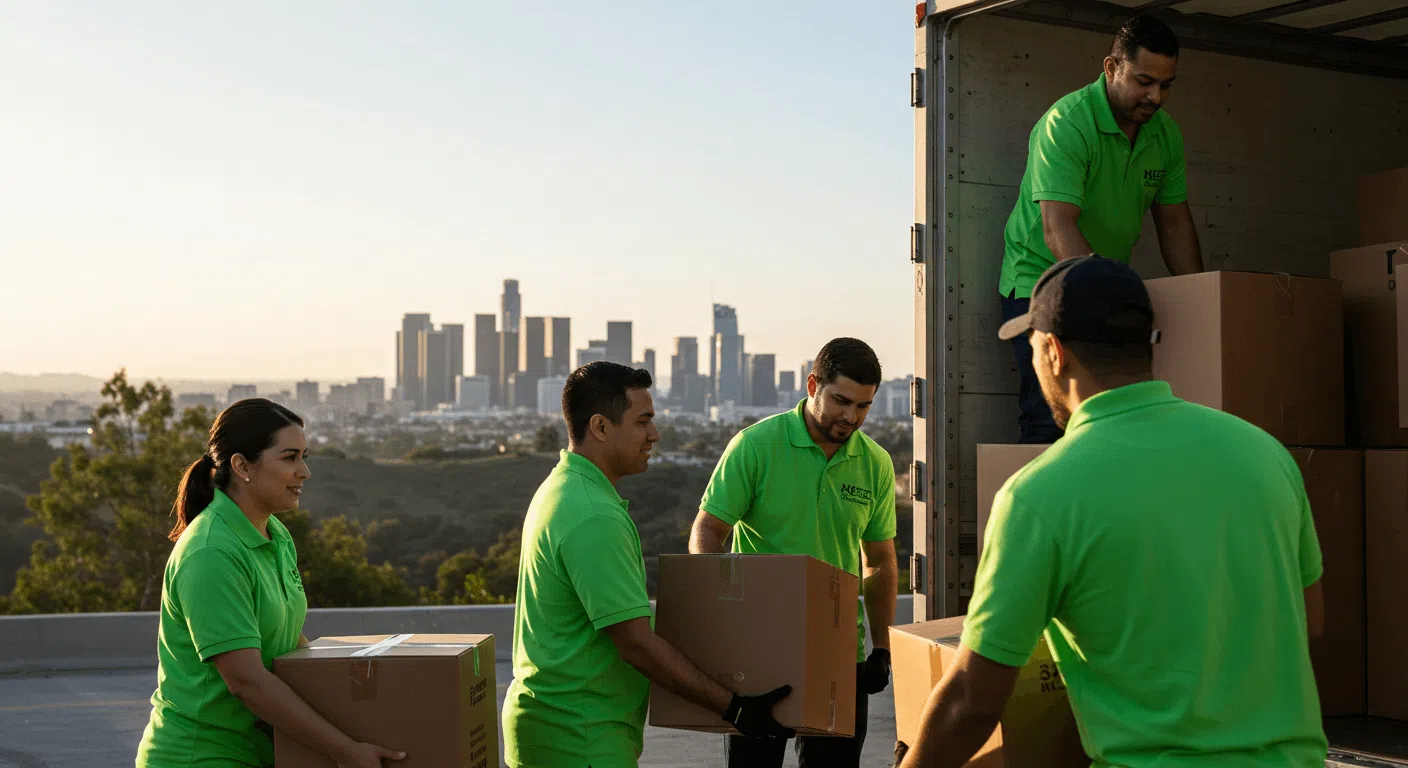Searching “moving companies near me” can feel like tossing a dart in the dark. Between sketchy Craigslist ads and smooth-talking sales reps, how can you be sure you’re hiring someone legit? In this guide, we’ll show you how to separate licensed professionals from the fly-by-night operators using five simple credential checks every smart mover should run.
TLDR – Quick Guide
If you’re short on time, here’s a cheat sheet:
- Ask for a DOT/MC number (required for long-distance and many local moves).
- Verify proof of insurance and licensing—don’t just take their word for it.
- Check reviews across multiple platforms (Google, Yelp, BBB).
- Make sure they offer a detailed, written estimate—not just a ballpark number.
- Look for companies with a track record and public presence, like Pure Moving Company.
Implementation Tactics: 5 Ways to Vet a Local Moving Company
1. Check Licensing Numbers (And Verify Them)
Any reputable mover operating across state lines must be registered with the U.S. Department of Transportation (USDOT). Ask for their DOT and MC (Motor Carrier) numbers, then verify them on FMCSA’s website. For local-only movers (like in Los Angeles), ask for a California Public Utilities Commission (CPUC) license.
2. Ask for Proof of Insurance & Bonding
Professional moving companies are required to carry insurance—and you need to see it. This includes liability coverage and cargo protection. Pure Moving Company publicly lists their insurance details and is bonded, a major trust signal that protects both sides.
3. Read Verified Reviews Across Multiple Sites
Don’t rely on cherry-picked testimonials on their homepage. Look them up on Google, Yelp, the Better Business Bureau, and even Reddit for candid feedback. For example, Pure Moving’s Los Angeles movers have earned thousands of 5-star reviews across platforms—exactly what you want to see.
4. Demand a Transparent, Written Estimate
Shady movers will throw out lowball numbers over the phone to reel you in—then hit you with “unexpected charges” later. A credible moving company should provide an in-home or video walkthrough followed by a written estimate outlining all fees. Be skeptical of companies that won’t commit to a quote in writing.
5. Check Their Digital Footprint and Real-World Presence
A legitimate business should have a professional website, local phone number, physical address, and ideally a local office you can visit. A robust digital presence (blog, social profiles, review history) also signals credibility. If the company only communicates via personal Gmail accounts or uses stock photos on their website—run.
Key Takeaways
- A quick search for “moving companies near me” isn’t enough—you must vet each one thoroughly.
- Licensing, insurance, and honest reviews are your best defense against scams.
- Companies like Pure Moving Company back their reputation with transparency and credentials.
- When in doubt, skip the lowball quotes and invest in peace of mind.
Ready to move the right way? Check out Pure Moving’s Los Angeles movers for trusted service that’s as professional as it is punctual.
FAQs
1. Is it safe to hire a moving company I found online?
It can be—if you do your homework. Always verify their licenses, insurance, and review history before booking. Reputable companies like Pure Moving provide all this upfront.
2. How can I tell if a mover is licensed?
Ask for their DOT or CPUC number and verify it on the respective government sites. Most real movers will have this info on their website or business card. Avoid any company that’s vague or refuses to share.
3. What kind of insurance should movers have?
They should carry liability insurance (in case they damage your property) and cargo insurance (to protect your belongings in transit). Movers should also be bonded, which covers fraud or theft. Always ask for a copy or proof.
4. Are Yelp and Google reviews reliable for choosing movers?
Yes—when viewed in context. Look for patterns, such as repeated complaints about hidden fees or damage. Prioritize companies with lots of verified reviews, not just a few glowing ones.
5. Should I avoid movers without a physical office?
It’s a red flag. While not every mover has a storefront, they should at least have a business address and local contact info. If you can’t find where they’re based, they might disappear after taking your deposit.





